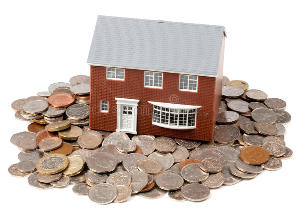Long-run historical evidence suggests central banks have reasons to worry about the side-effects of loose monetary conditions, he says.
“During the 20th century, real estate lending became the dominant business model of banks. As a result, the effects low interest rates have on mortgage borrowing, house prices and ultimately financial instability risks have become considerably stronger.”
Coleman says interest rates are an important determinant of property prices when location quality is important, even if the overall supply of new dwellings is elastic.
“In most cities, people are willing to pay on an ongoing basis for the benefits of living in an attractive location, and these rent-equivalents are capitalised into property prices at rates that depend on interest rates,” he says.
Interest rate changes have at least three effects on property prices. First, says Coleman, either a permanent or temporary drop in interest rates can cause “cyclical backwardation” in the housing market, particularly when capacity is stretched in the building sector, as many households demand a better-quality home when interest rates decline.
Cyclical backwardation occurs when current house prices (or rents) are temporarily above the usual cost of building homes and developing land, and are expected to fall back to usual levels in the future.
Secondly, a temporary decline in interest rates can create “cyclical backwardation” in land prices by temporarily increasing the demand for better located property, particularly if they change expectations about house price growth rates.
Thirdly, a permanent decline in interest rates will often cause a permanent increase in land and dwelling prices, even though it may not affect rents, as it increases capitalisation factors.
“Models that ignore location differences within a city tend to underestimate the sensitivity of property prices to real interest rates as they ignore the way transport-related rents and prices vary across suburbs,” he says.
To combat high price houses, central banks could increase interest rates.
There are some reasons to believe that central banks could be justified in choosing interest rate paths that reduce cyclical house price backwardation, Coleman says.
This reduces the demand for higher quality houses, and as such temporarily higher interest rates are a substitute for temporarily high house prices.
Whether a central bank wishes to follow such a strategy will depend on its goals and its assessment of the costs and benefits of using macroprudential tools or interest rates.
He says there is extensive central banking literature analysing the relative effects of interest rate changes and macroprudential regulations on economic activity and financial stability. “While these issues are far from settled, most central banks including the Reserve Bank of New Zealand favour the use of macroprudential interventions to temper the economic effects of episodes of rapid house price and mortgage credit growth and to reduce the probability that these episodes are followed by episodes of financial instability.”




 Search
Search
